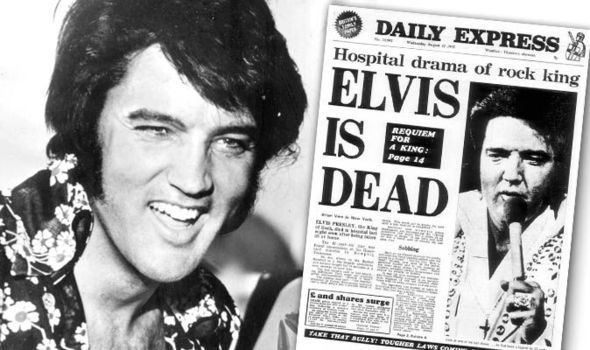
In the early hours of August 16, 1977, the world unknowingly stood on the edge of losing its greatest icon. Inside the walls of Graceland, a place once alive with music, laughter, and fame, Elvis Presley—the King of Rock and Roll—was facing the final moments of a life that had once captivated millions. But behind the velvet curtains and gold records, Elvis’s last 24 hours were not filled with glory. They were marked by isolation, pain, and a haunting stillness that spoke louder than any stadium roar.
At just 42 years old, Elvis was a man trapped by the very legend he created. In the hours leading up to his death, he spent much of his time alone—retreating to his private bathroom shortly after midnight, telling his fiancée, Ginger Alden, he was going to read. That was the last thing she heard him say. He never came back.
The day before, Elvis had visited the dentist, played racquetball, and tried to sleep, but insomnia kept him restless. He seemed anxious. Tired. And unlike himself. To those closest to him, the signs had been there—his declining health, his dependence on prescription medication, his struggle to keep performing. But no one believed that the end would come so soon. Or so quietly.
When Ginger found him the next afternoon, it was already too late. The world would soon learn what his inner circle had feared: that the King was gone. Not in a blaze of light onstage, but in a private, lonely moment behind closed doors.
Elvis Presley’s final 24 hours are more than just a timeline—they’re a haunting chapter in the story of a man who gave everything to the world, and in the end, had very little left for himself.
